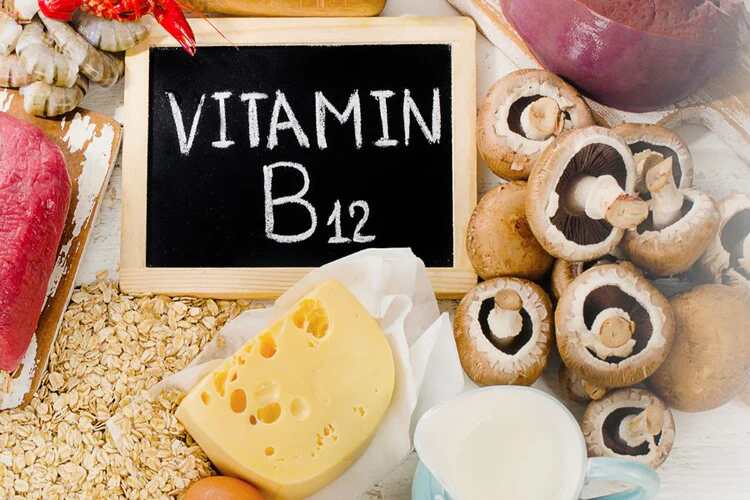If you are looking for ways to increase your calcium intake, you don’t have to turn to dairy products. Many non-dairy foods are high in calcium! In this blog post, Dr. Ryan Shelton, Zenith Labs, will discuss eight of the best sources of calcium for people who don’t eat dairy. So whether you are lactose intolerant or don’t like dairy products, there is no need to worry – these eight foods will help you get the calcium you need.
Why Is Calcium Important?
Before we get into the list of non-dairy foods high in calcium, let’s briefly discuss why calcium is so important. Calcium is essential for strong bones and teeth. It also plays a role in blood clotting, nerve function, and muscle contraction. Getting enough calcium is essential for children and teenagers, who are still growing and developing.
So how much calcium do you need? Dr. Ryan Shelton, Zenith Labs, says the recommended daily intake (RDI) of calcium is 1000 mg for adults up to age 50, 1200 mg for women over 50, and 1500 mg for men over 70. You can get calcium from both food and supplements, but it is always best to try to meet your needs through diet first.
Now that we’ve discussed why calcium is important, let’s look at ten non-dairy foods high in this essential nutrient.
Kale
Kale is a great source of calcium – one cup of cooked kale contains approximately 180 mg of calcium. Kale is also a good source of other vitamins and minerals, such as vitamin C, vitamin K, and iron.
Bok Choy
Bok choy is another leafy green vegetable high in calcium, with one cup of cooked bok choy containing approximately 158 mg of calcium. It also contains vitamins A, C, and K and folate and manganese.
Broccoli
Broccoli is also a good choice, as one cup of cooked broccoli contains around 62 mg of calcium. Broccoli is also a good source of vitamins C and K and fiber. These vitamins and minerals are essential for bone health.
Fortified Soy Milk
Fortified soy milk is a great non-dairy option for looking for a calcium-rich beverage. One cup of fortified soy milk contains around 300 mg of calcium – that’s almost as much calcium as you would find in one cup of cow’s milk! Soy Milk is also a good source of protein, making it a great choice for breakfast or a post-workout snack.
Sardines
Sardines are an excellent source of calcium and a good source of protein and omega-three fatty acids. One can of sardines contains around 350 mg of calcium. Sardines are also a good source of vitamin D, which is essential for calcium absorption.
Tofu
Tofu is another excellent source of calcium, with one cup containing around 258 mg. It is also a good source of protein and iron. Tofu is a versatile ingredient that can be used in various dishes, such as stir-fries, soups, and salads.
Almond Milk
One cup of almond milk contains around 45 mg of calcium, making it a great non-dairy option for those looking to increase their calcium intake. Almond milk is also a good source of vitamin E, which is an important antioxidant.
Tahini
Tahini is a paste made from ground sesame seeds, and one tablespoon of tahini contains around 64 mg of calcium. It is also a good source of iron and magnesium. Tahini can be used in various dishes, such as hummus or baba ganoush.
Supplements
If you are unable to get enough high in calcium from your diet, you may need to take a supplement. Dr. Ryan Shelton, Zenith Labs, recommends taking a supplement that contains vitamin D, as this vitamin is essential for calcium absorption. You should also look for a supplement that contains magnesium, as this mineral helps to keep bones healthy.
Why Would Someone Benefit From Non-Dairy Options?
Dr. Ryan Shelton, Zenith Labs, says there are many reasons why someone might choose to consume non-dairy options, even if they are not lactose intolerant. Some people don’t like the taste of dairy products, while others believe that non-dairy options are healthier for them. Whatever the reason, there is no need to worry – there are plenty of calcium-rich non-dairy foods available.
Conclusion
There are many non-dairy foods that are high in calcium, so there is no need to worry about getting enough of this essential nutrient. If you are unable to get enough calcium from your diet, you may need to take a supplement. Dr. Ryan Shelton, Zenith Labs, recommends taking a supplement that contains vitamin D, as this vitamin is essential for calcium absorption. Non-dairy options are a great way to make sure you’re getting enough calcium, without having to consume dairy products.




